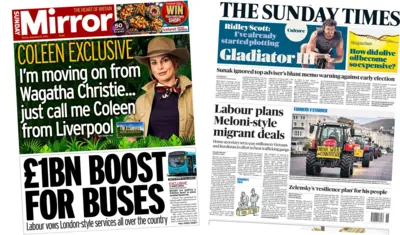We've updated our Privacy and Cookies Policy
We've made some important changes to our Privacy and Cookies Policy and we want you to know what this means for you and your data.
BGMI: Why India has blocked the popular combat mobile game
Image source, Getty Images
- Author, Meryl Sebastian
- Role, ҙуПуҙ«ГҪ News, Cochin
A popular combat and survival game similar to hit video game PlayerUnknown's Battleground (PUBG) has been blocked in India.
Battlegrounds Mobile India (BGMI) has been taken off the Google and Apple app stores.
Google said it had blocked access to the game in the country after receiving a government order.
Developer Krafton confirmed the news and said it was talking to authorities to understand why it was suspended.
BGMI is a rebranded avatar of PUBG, which was among a slew of Chinese-origin apps blocked by the Indian government in 2020.
The ban in 2020 took place against the backdrop of tensions between the two countries along a disputed Himalayan border.
In several phases throughout the year, India banned apps like WeChat Work and TikTok, that had Chinese links.
"The government had banned these apps citing security concerns, data of Indian citizens going out etc, but it was essentially meant to put pressure on China over the border conflict," says tech analyst Prasanto K Roy.
PUBG was developed by a subsidiary of the South Korean company, Krafton, and operated in India through Tencent Games, a division of the Chinese multinational Tencent Holdings.
The company cut ties with Tencent in India and released BGMI in 2021. A year after its launch, the Krafton said the game had 100 million registered users in India.
In June, PUBG made headlines again after a 16-year-old boy in Lucknow city in the northern Indian state of Uttar Pradesh allegedly shot his mother dead for scolding him about playing the game.
The incident renewed a debate about the violence in such games and also came up in the ongoing session of the parliament.
In response to an MP's question about such apps, the government said it was looking into reports of rebranded and similar sounding apps.
The current BGMI ban links itself back to the Chinese apps ban, says Mr Roy.
"Since 2020, the government had added a further layer of scrutiny to funding sources which come from a country with which India shares a land border," he says. "It has also been looking harder and harder at apps with Chinese origin."
This year, the government and the Reserve Bank of India have been cracking down on lending-related apps. "These apps are not regulated and triggered genuine issues but the scrutiny has essentially to do with the concerns with China," he says.
While BGMI is published by the South Korea's Krafton, China's Tencent Holdings has a 13.6% stake in the company through its subsidiary Image Frame Investment.
Under intense government scrutiny, Mr Roy says, apps that are Chinese-owned or have significant Chinese investment will continue to find it extremely difficult to operate in India.
Top Stories
More to explore
Most read
Content is not available








